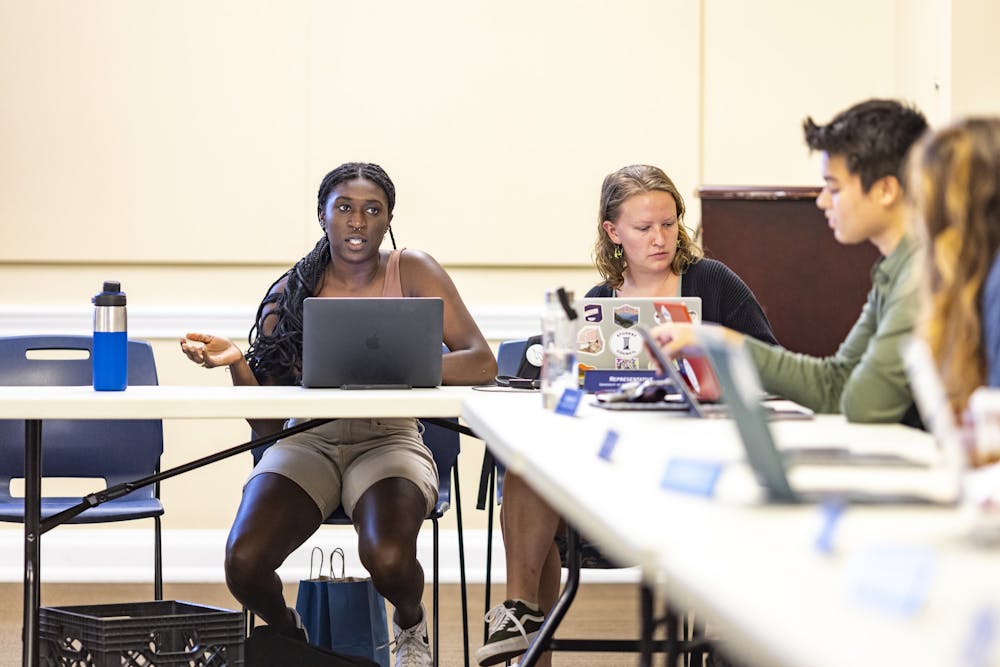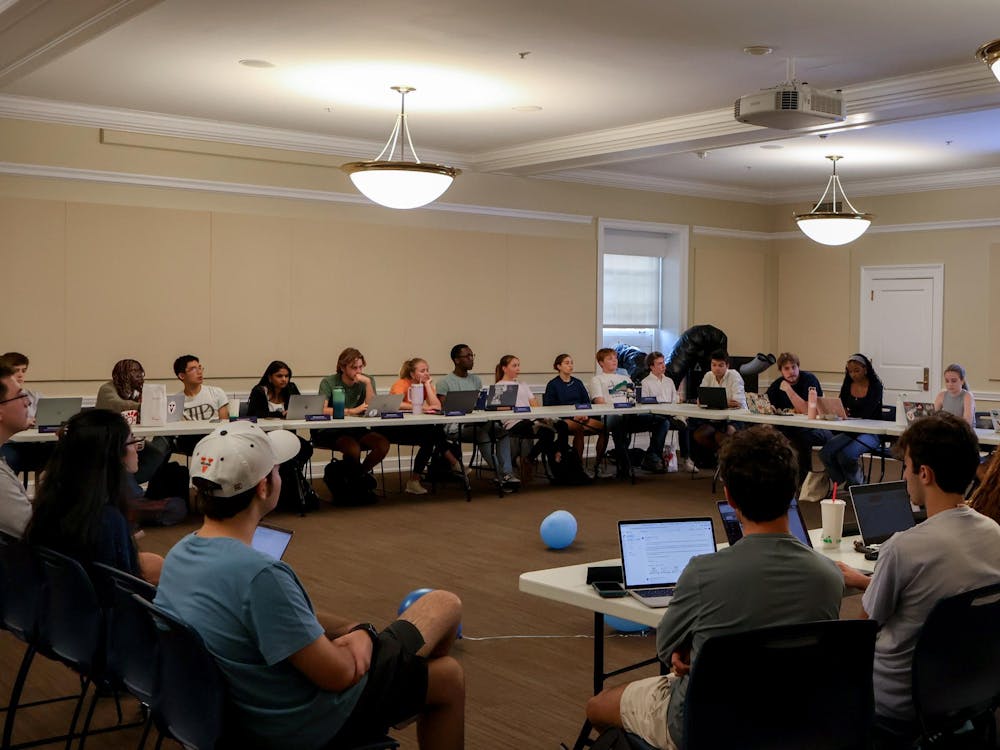Student Council’s Representative Body passed a bill one to acquire rapid COVID-19 tests using Student Council funds and tabled another to approve the 2023-2024 Student Council budget during Tuesday’s meeting.
In response to a recent spike on COVID-19 cases among students, third-year College representative Jason Almas presented a bill to use $500 of leftover discretionary funds from the summer 2023 budget to acquire rapid COVID-19 tests for students.
Student Health and Wellness no longer offers free COVID-19 testing for students and instead requires an appointment to get a PCR test.
The bill states that COVID-19 tests cost between $10 to $30, so Student Council will provide anywhere from 16 to 50 tests. Almas said that the tests will be administered on a first come, first serve basis.
“We’re hoping that students will be cognizant of others and grab what they need and not take any more than they need, but there’s not going to be any sort of massive priority system,” Almas said.
Holly Sims, vice president for administration and graduate Batten student, noted the previous demand for these tests among students, saying that last year Student Council was allocated $15,000 on COVID-19 tests that were quickly used up by students.
The bill passed with 14 yeas, 0 nays and 2 abstentions. The $500 will provide one round of free testing for students.
Sims also presented Student Council’s proposed budget of $314,037. Following a vote last semester to change Student Council’s budget from two semesterly segments to one annual document, Sims said she looks forward to this new budgetary timeline, which allows for more flexibility.
“People did a good job of requesting what they needed to for the year,” Sims said. “There were very few changes that needed to be made to reflect that it's an annual budget, and I'm excited for budget amendments. I think that that's going to allow us to be a lot more dynamic.”
Student Council requests $25,453 less in the 2023-24 budget compared to last year’s combined fall and spring semester budgets, with a total request of $314,037. The document also notes that $9,794 of the requested funds will come from leftover summer 2023 funds, meaning that the new funds requested total $304,243.
The Diversity Engagement Agency requests $30,000 less for diversity grants compared to last year’s total. The University recently expanded SAF guidelines to allow multicultural CIOs to request more funds through the formal SAF request process rather than separate grants to obtain funds.
The Safety and Wellness committee is requesting $18,000 more this year to pay for free STI testing in both the fall and spring semester. This program was very popular among students last year — Student Council requested $15,000 for testing, which ran out in just 11 days in February.
In previous years, the Representative Body requested more in COVID-19 support funding, but this year only requested $1,500. Sims reminded representatives that the flexible budget process allows more funding requests if needed later in the semester.
“This does not mean that [the Representative Body] only has $1,500 for the year, you will have as much money as you need…you just might have to request a budget amendment,” Sims said.
To request more money throughout the year, representatives can write a bill proposing an amendment to the budget that requests a certain specified amount of funding for a specific initiative, which then gets voted on by the General Body.
The General Body voted to table the bill, as required by Student Council’s bylaws before a final vote on the budget.
Sims informed representatives that the Student Activities Fee paid by all students in tuition will see a $1 increase from $56 to $57 in the current academic year. This increase is independent from Sims’s proposal from last week’s meeting to raise the future SAF by $2.
The current increase is the result of a clerical error that occurred when the University switched platforms from Oracle to Workday in 2022. During this switch, a $1 fee was inadvertently assigned to the Student Athletic Fee — a fee included in all student tuitions that funds athletic initiatives — which was supposed to be part of the Student Activities Fee. This year, the existing $1 fee increase will simply be reallocated to the Student Activities Fee.
Despite this increase, Sims said she would still like to move forward with her initial proposal for an additional $2 increase for the SAF, meaning it would total $59. Sims said that the increased funding from this increase is still not sufficient.
The General Body will meet again next week to consider possible budget amendments and vote on the budget proposal.







